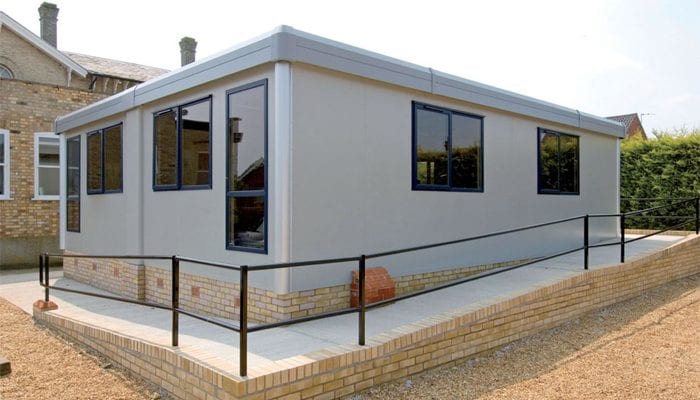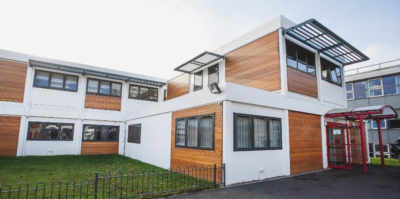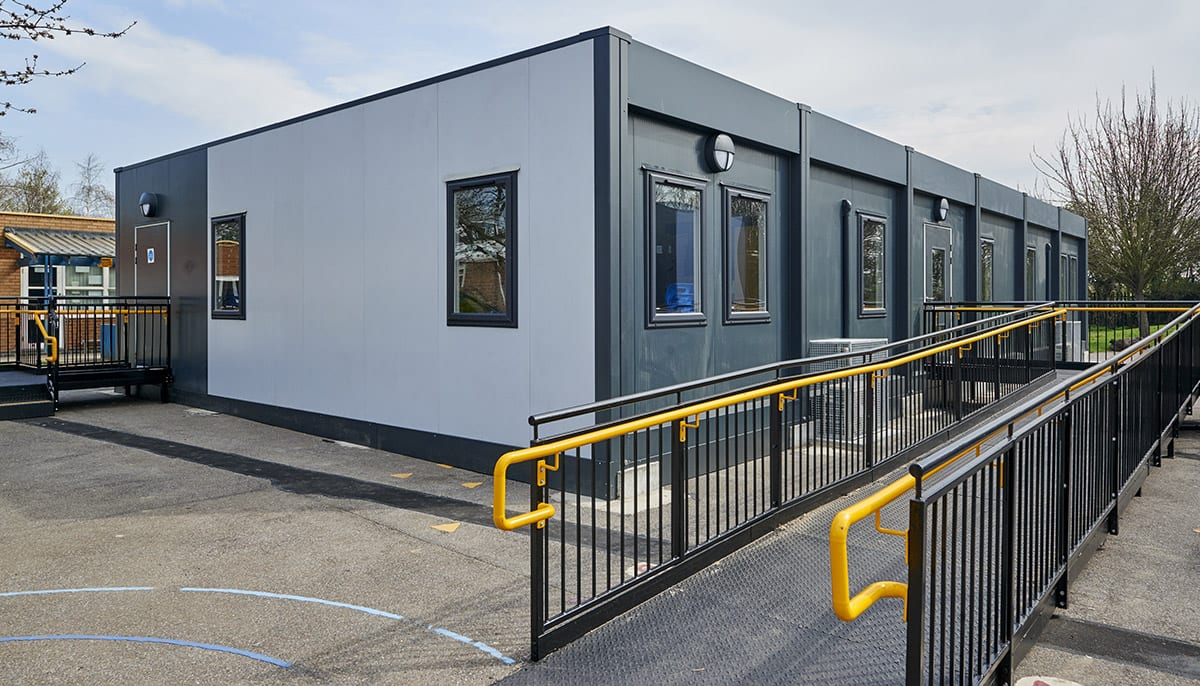
The Environmental Benefits of Energy-Efficient Modular Offices
Sustainability is no longer just a trend—it’s a necessity for businesses looking to reduce their environmental impact while cutting operational costs. Traditional office construction methods are resource-intensive, wasteful, and slow, making them less than ideal for companies focused on eco-friendly solutions. That’s where energy-efficient modular offices come in.
As a graduate of the University of Colorado with a bachelor’s degree in Environmental Engineering, and the owner of a successful modular office solutions company in Oregon for the past 11 years, I’ve seen firsthand how businesses can benefit from sustainable, energy-efficient office buildings. Through my work with Mobile Office Deals, I’ve helped companies lower their carbon footprint, reduce energy consumption, and create eco-friendly workspaces without sacrificing quality or functionality.
In this article, I’ll explain the environmental benefits of modular offices, why they’re a better choice compared to traditional construction, and how they help businesses meet their sustainability goals.
What Are Energy-Efficient Modular Offices?
Modular office buildings are prefabricated structures built in a controlled factory environment, then transported and assembled on-site. Unlike traditional buildings, modular offices use efficient construction methods and sustainable materials, making them a more environmentally friendly option.
Energy-efficient modular offices take sustainability a step further by incorporating:
- High-performance insulation to reduce heating and cooling costs
- LED lighting systems that consume less electricity
- Solar panel compatibility for renewable energy use
- Energy-efficient HVAC systems to minimize energy waste
- Recycled and low-impact materials to reduce environmental strain
With these eco-friendly features, modular offices help businesses cut costs, improve energy efficiency, and contribute to a greener future.

How Modular Offices Reduce Environmental Impact
1. Less Construction Waste
One of the biggest environmental drawbacks of traditional construction is the enormous amount of waste produced. According to industry reports, up to 30% of building materials end up as waste on traditional job sites.
Because modular offices are built in a factory-controlled setting, materials are measured, cut, and optimized to minimize waste. Any leftover materials are recycled or repurposed, making modular construction significantly less wasteful than traditional building methods.
2. Lower Energy Consumption During Construction
Traditional construction projects require heavy machinery, transportation, and on-site energy use, leading to higher carbon emissions.
Since modular offices are built off-site in a controlled facility, they require less energy to produce. Additionally, factories that manufacture modular buildings often use renewable energy sources, further reducing the overall carbon footprint of the construction process.
3. Energy Efficiency in Daily Operations
Energy-efficient modular offices are designed with modern insulation, energy-saving windows, and efficient HVAC systems, helping businesses reduce their heating and cooling costs.
Some modular office features that improve energy efficiency include:
- Tightly sealed insulation that prevents heat loss in winter and heat gain in summer
- LED lighting systems that consume up to 75% less energy than traditional lighting
- Smart thermostats that optimize heating and cooling usage
- Energy-efficient windows that reduce reliance on artificial heating and cooling
By incorporating these features, modular offices lower overall energy consumption, saving businesses money while reducing environmental impact.

4. Faster Construction Reduces Pollution
Traditional buildings take months or even years to complete, generating prolonged pollution from construction vehicles, equipment, and material transportation.
In contrast, modular office buildings are completed 30-50% faster than traditional buildings, which means:
- Less on-site pollution from trucks and heavy equipment
- Fewer transportation-related carbon emissions
- Less disruption to the surrounding environment
With faster installation times and minimal on-site activity, modular offices are the cleaner, greener choice for businesses prioritizing sustainability.
5. Sustainable and Recycled Building Materials
Many modular offices are constructed using recycled or sustainable materials, reducing reliance on new raw materials. Common eco-friendly materials used in modular office construction include:
- Recycled steel and aluminum for framing
- Sustainably sourced wood and bamboo for walls and flooring
- Low-VOC paints and finishes that improve indoor air quality
- Recycled glass windows that enhance energy efficiency
Using these materials helps businesses reduce their environmental footprint while still maintaining durability and high-quality construction.
6. Renewable Energy Integration
Many modular offices are designed to accommodate solar panels, wind energy systems, and battery storage, allowing businesses to further reduce reliance on fossil fuels.
Solar-ready modular offices provide:
- Lower energy costs through renewable power generation
- Increased energy independence for off-grid locations
- A long-term reduction in carbon emissions
By incorporating renewable energy options, modular offices become even more sustainable and cost-effective.

Additional Benefits of Energy-Efficient Modular Offices
Aside from their environmental advantages, modular offices provide businesses with additional benefits that make them a smart investment.
Cost Savings
- Lower energy bills due to improved insulation and energy-efficient features
- Reduced material waste means lower overall construction costs
- Less maintenance and repairs thanks to durable, high-quality construction
Flexibility and Scalability
- Modular offices can be expanded, relocated, or reconfigured as business needs change
- Ideal for businesses that require temporary or semi-permanent office solutions
- Customizable layouts allow companies to design a workspace that suits their needs
Improved Indoor Air Quality
- Many modular offices use low-VOC paints, adhesives, and finishes to reduce air pollution inside the workspace
- Better ventilation systems improve airflow and employee well-being

Are Energy-Efficient Modular Offices Right for Your Business?
Energy-efficient modular offices are ideal for businesses that:
- Want to reduce their environmental impact while maintaining productivity
- Need an affordable, fast, and customizable office solution
- Prioritize energy savings and long-term cost reductions
- Are interested in sustainable building practices
If your company is looking for a modern, environmentally friendly office space, investing in a modular office building is one of the best decisions you can make.
Final Thoughts
The demand for sustainable office solutions is growing, and energy-efficient modular offices provide an eco-friendly, cost-effective alternative to traditional construction. With reduced waste, lower energy consumption, and sustainable materials, modular offices are helping businesses create a greener, more efficient future.
For companies that want to minimize their carbon footprint while benefiting from cost savings and flexibility, energy-efficient modular offices are the perfect solution.
About the Author
Ethan Caldwell is a University of Colorado graduate with a bachelor’s degree in Environmental Engineering. As a writer and editor for Mobile Office Deals and the owner of a successful modular office company in Oregon for 11 years, Ethan specializes in sustainable construction, energy-efficient building solutions, and eco-friendly workspace design.
